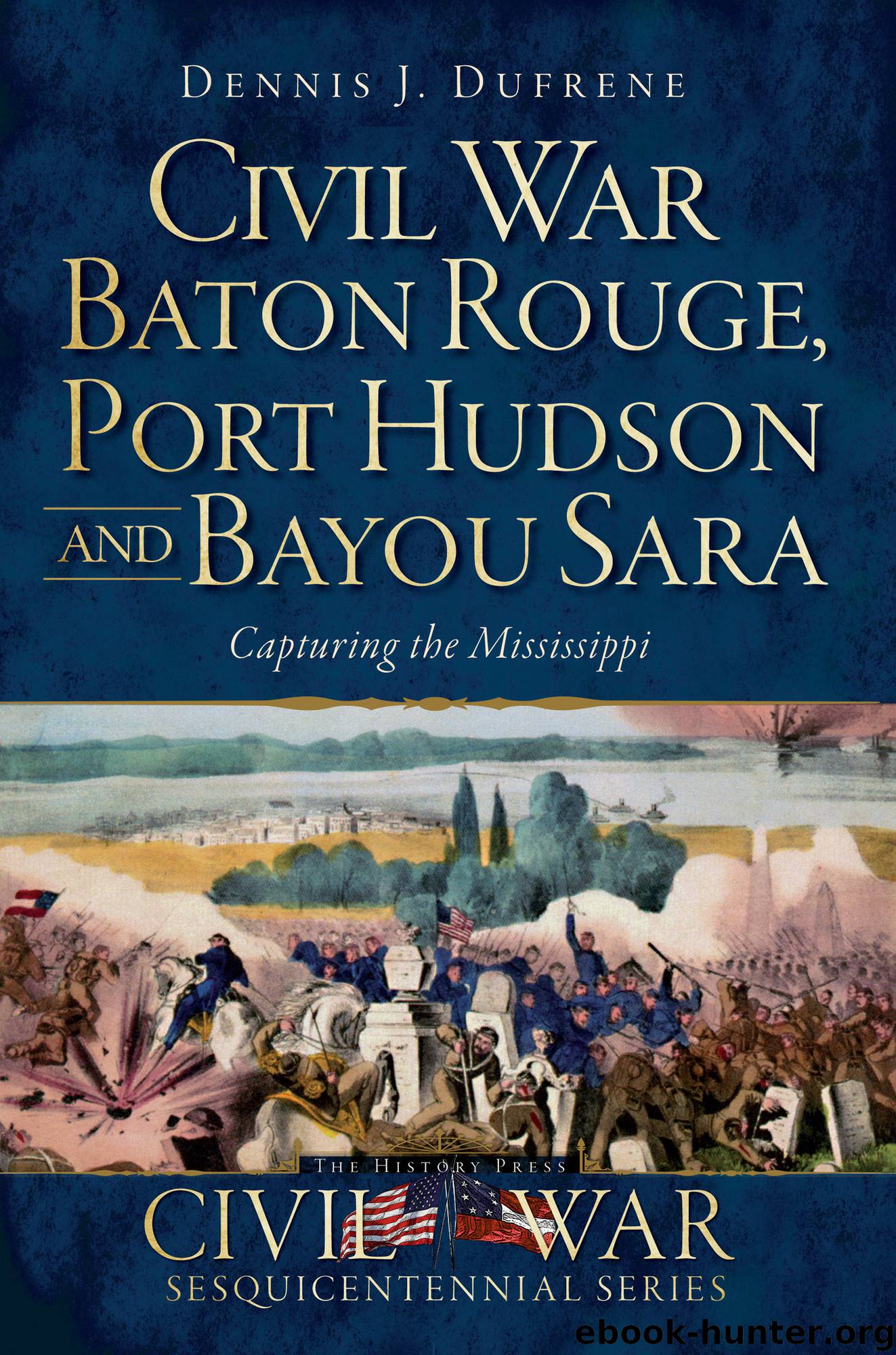Civil War Baton Rouge, Port Hudson and Bayou Sara by Dennis J. Dufrene

Author:Dennis J. Dufrene
Language: eng
Format: epub
Published: 2019-02-12T16:00:00+00:00
Chapter 2
The Union Plan for the Mississippi River
As soon as Lincoln and his advisors received word that Louisiana had seceded from the Union, they knew what must be done: the Union had to capture the Mississippi River. Being the main thoroughfare into the interior of America, the Mississippi River was considered to be one of the most critical theaters of the Civil War. This idea was not lost on the Confederates, either. The newly elected president of the Confederacy, Jefferson Davis, described Vicksburg as a “vital point” in the lower Mississippi Valley.
The Union plan, proposed by General in Chief Winfield Scott, was deceptively simple: create a blockade in the Gulf of Mexico to block the flow of resources to and from the South. Once the blockade was in place, the Union would then travel north up the Mississippi while also traveling south down the Mississippi. This maneuver would not only divide the South but also effectively strangle the region by restricting the movement of men, weapons and supplies. This plan was adopted in 1862 and became known as the Anaconda Plan in newspapers across the country.
The plan was a tremendous success, and its implementation was a critical factor in the outcomes of the Western Campaign. By April 24, 1862, Federal captain (later admiral) David Glasgow Farragut, coming from the south, forced the city of New Orleans to surrender. With the Crescent City under Federal control, the Union could move freely down the Mississippi River from New Orleans into the Gulf of Mexico. The Union also maintained control over the river north to right above Vicksburg. Along with Vicksburg, there was only about forty miles of river left for the Union to capture. The Confederates controlled the river from Louisiana’s capital city of Baton Rouge stretching north to the little river town of Bayou Sara, which is now part of modern-day St. Francisville.
Download
This site does not store any files on its server. We only index and link to content provided by other sites. Please contact the content providers to delete copyright contents if any and email us, we'll remove relevant links or contents immediately.
| Africa | Americas |
| Arctic & Antarctica | Asia |
| Australia & Oceania | Europe |
| Middle East | Russia |
| United States | World |
| Ancient Civilizations | Military |
| Historical Study & Educational Resources |
The Body: A Guide for Occupants by Bill Bryson(5082)
Liar's Poker by Michael Lewis(3441)
Into Thin Air by Jon Krakauer(3385)
Tuesdays With Morrie by Mitch Albom(2754)
Into the Wild by Jon Krakauer(2628)
The Diamond Cutter by Geshe Michael Roach(2058)
My Dark Places by James Ellroy(1926)
Columbine by Dave Cullen(1863)
Helter Skelter: The True Story of the Manson Murders by Vincent Bugliosi & Curt Gentry(1719)
Extraordinary, Ordinary People by Condoleezza Rice(1495)
Everything in Its Place by Oliver Sacks(1482)
Pilgrim at Tinker Creek by Annie Dillard(1428)
Into the wild by Jon Krakauer(1425)
You Can't Touch My Hair by Phoebe Robinson(1401)
The Girls: Sappho Goes to Hollywood by Diana McLellan(1317)
Dark Towers by David Enrich(1251)
Betrayal by Gregg Olsen(1245)
Call Sign Chaos by Jim Mattis & Bing West(1223)
Remedy and Reaction by Paul Starr(1195)
